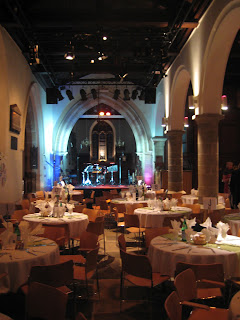Gillian Lund writes about an exciting new deanery venture based in Richmond. The very first event has led to the setting up of a new, monthly service for children, young people, families and friends at St Mary's called the FUN KEY service (yes, I like it!)
The first FUN KEY Service will be on Sunday 29th April
4pm St Mary's Richmond
God Cares for Ewe
Open to all
'On Sunday 25th March, St Mary's Church Richmond hosted a
Deanery Exploring Easter Children's Event. Graham Richards the Children
and Young People's Development Worker for the Richmond Archdeaconry had held a
meeting at The Station in Richmond regarding children's work and provision, and
from that came a desire for churches in the Deanery to hold a larger event to
encourage future children's work. After an initial meeting, four weeks
before the event at our Rectory, we set to work planning our craft, art, baking
and musical activities.
To cut a long story very short, we were blessed with some
very enthusiastic volunteers from the church and area, including some from
Richmond Methodist Church.
Prior to the event, Graham emailed clergy throughout the
Deanery and between word of mouth, blatant advertising at meetings and local
groups, school assemblies and even a global text message being sent out by our
local Richmond C of E Primary inviting children to attend. Although we
did not have many guests from across the Deanery we were thrilled to welcome 41
children aged 5 to 11 years old and approximatly 35 adults (parents,
grandparents etc) from around Richmond.
The church was a hive of Easter activity, and we used all
the space available - we had Chocolate Easter Nest making, Resurrection Bun
baking in the MU area (Graham led this event and the church smelled
beautiful!), collage and card making up the centre aisle, music making in the Green
Howards Chapel with Rev'd John, story telling with plastic eggs to open (and
when the children were treated to beautiful buns and juice provided by kind
members of the congregation) at font area, jam jar easter decorations in
the altar area, pom pom chick making in the middle of the choir area, Nic
Shepperd and his Prayer Pool at the High Altar (the sun was shining and it
provided a very atmospherid space for everyone) and banner making in the side
aisle!

The children were free to move round the activities at their
own pace which worked very well, and towards the end of the event we all
went outside to hunt for laminated eggs with our names on them and
returned back in to church to claim our chocolate egg prizes.
The afternoon culminated in a short service with a story and
song to pull it all together, led by Graham.
We were very fortunate that a photographer from the
Northern Echo visited part way through the afternoon and took some beautiful
photographs that were published in both the Northern Echo and D&S Times.
The event has acted as a launch pad for future children's
activities. Rev'd John has always been most enthusiastic to nurture
school and church links, and increase the provision of childrens' events
and activities in our church. This Expolring Easter Event provided
something fun, interesting and meaningful for
children representing all the primary schools in Richmond,
and all denominations which has been fantastically encouraging for us as a
church.
We have now decided that we would like to hold a children
and young person's service on the last Sunday of every month, and our next
newly-named FUN-KEY Service for friends and family of all ages is on Sunday
29th April between 4 and 5pm at St Mary's Richmond. We have already
decided on our theme for the service - God Loves and Cares for Ewe! as
the readings for the day are Psalm 23 and John 10 The Good
Shepherd! Our volunteers are already beavering away with the preparations
- a large banner with a sheep made out of many different sheep, sheep bisuit/cake
making and decorating, cardboard sheep making and culminating again in
a time of worship to be led by John with some music making and time to
reflect on all we have done together.
This is then to be followed in June by our now Annual Pet
Service when we welcome children and adults to bring their pets to church to
give thanks for the love and happiness they give us.
So, it's all go at St Mary's at the moment!'
























